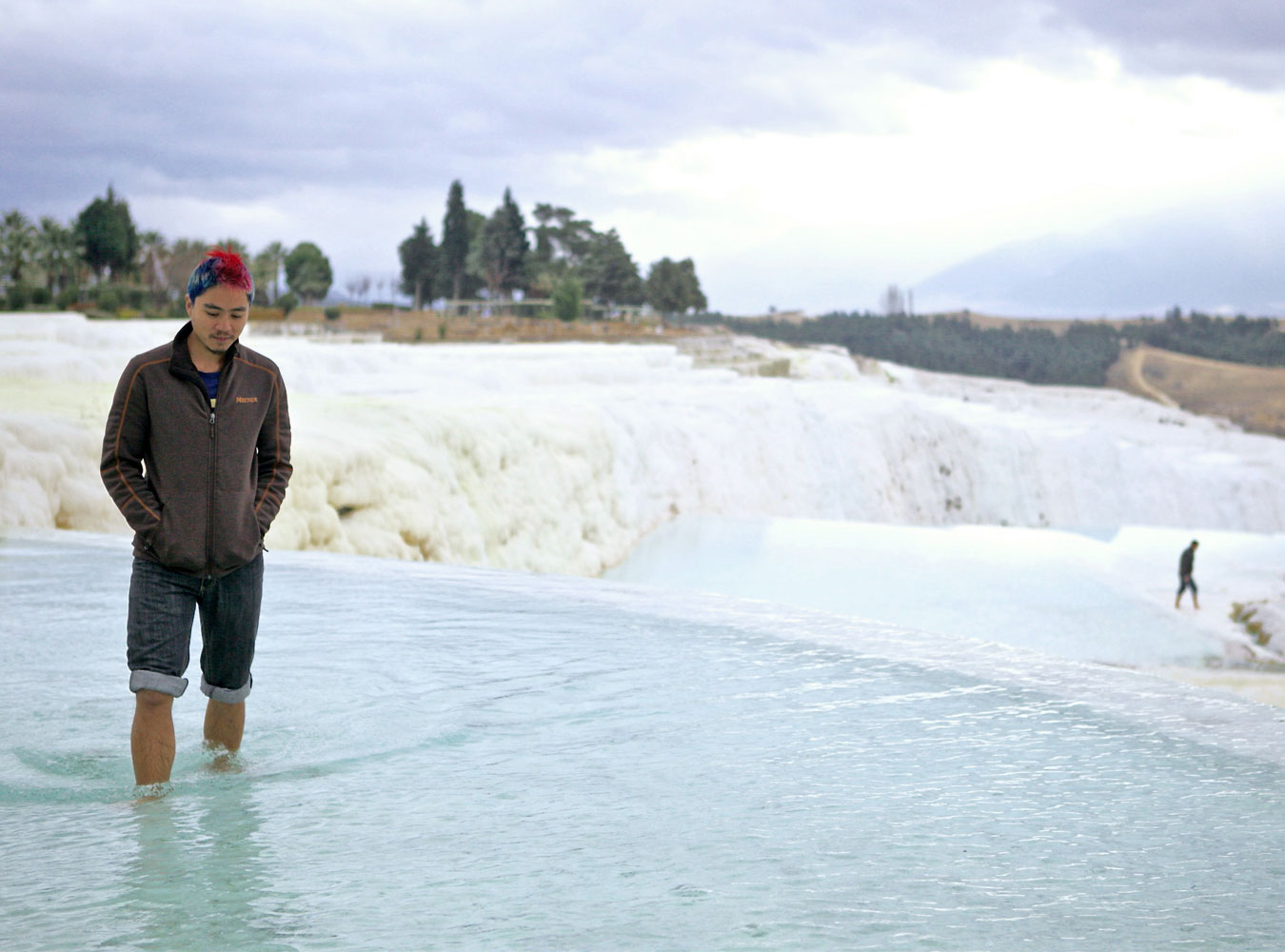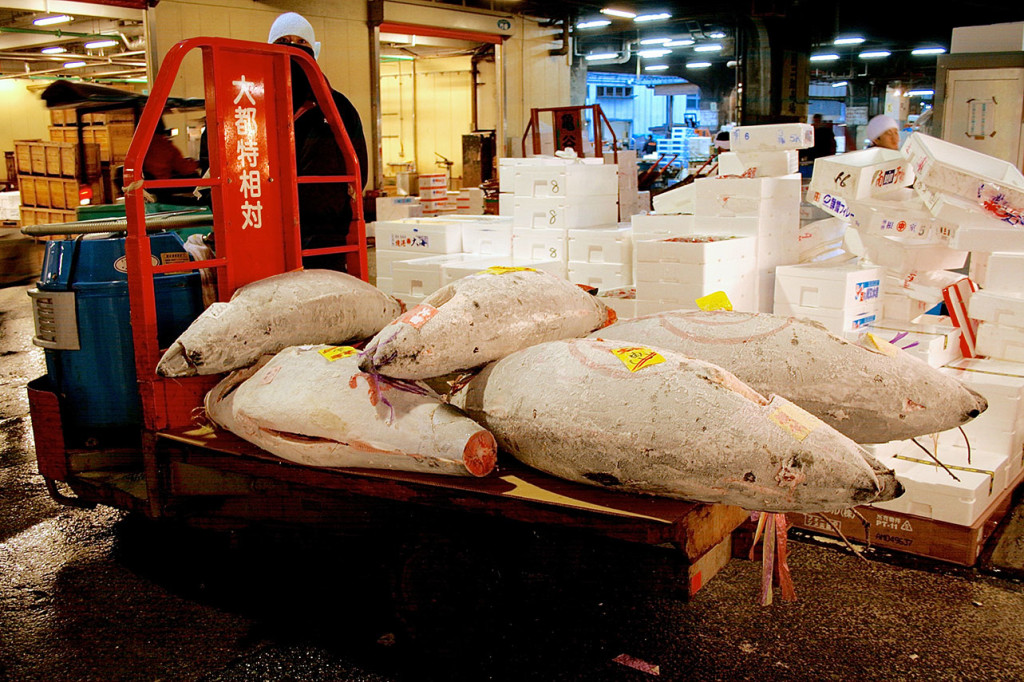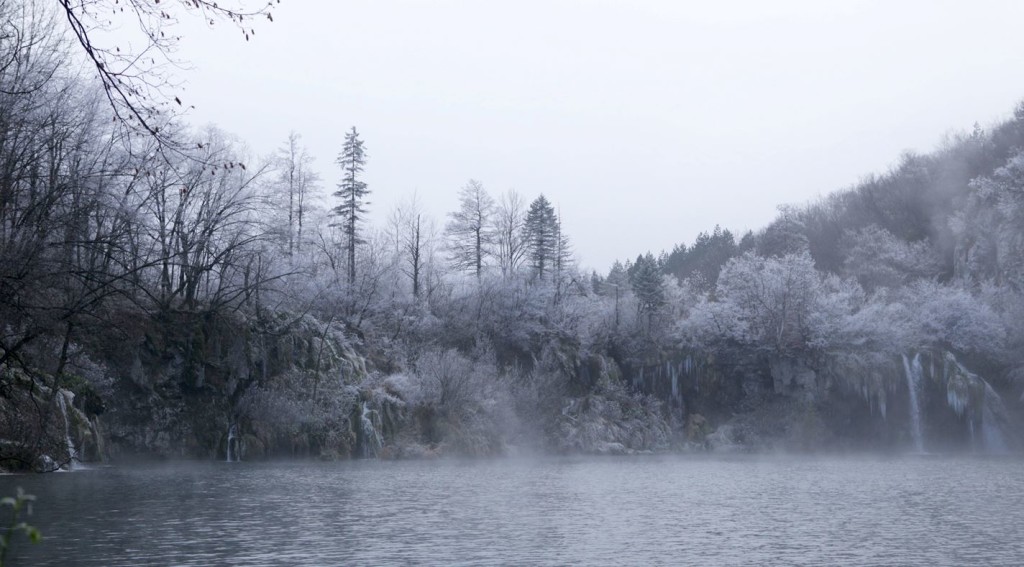We got into the town of Pamukkale after sun down, after an arduous journey, where our bus had broken down from Marmaris. It was getting late and we hadn’t pre-booked accommodation, so we made a beeline to the tourist information center in the middle of town.
The office was stark, with a few lockers in the corner, a map of turkey under a large no smoking sign, and in the center, a large wooden table. Ismail, sitting behind the desk and talking to some clients, waved us in. We dropped our packs in the corner, browsing at brochures from the shelves while we waited.
He finished off attending to the clients, took a swig from one of the many open bottles of raki (clear anise-flavored Turkish spirit, much like Greek Ouzo) and lit a cigarette, offering us a stick in the process. We glanced upwards to the no smoking sign (100 Lira penalty for smoking indoors) above his head. “That sign is for me to let you smoke in here, then fine you money after.” He joked as we accepted his hospitality.
Ismail Gümüş (Gumus literally “Silver” in Turkish) passed off as a laid-back businessman, efficient in getting tourists what they needed, fast. He fixed us up with a homestay and organized free transport to our commode without us having to ask, going so far as organizing transport from here to Ephesus (our next leg) and hooking us up with his cousin who would meet up with us and take care of our needs over there. The warmth of his company enticed us to linger, the raki completed the job, dragging our stay long into the night.
Pamukkale – The Cotton Castles
The next day we made our way across town to the looming white hills of Pamukkale. The town is named after its natural attraction Pamukkale meaning, “cotton castle” in Turkish. White pools of carbonate minerals mimicking cotton pools, left behind by the spring water cascading down the terraces. People have been bathing in these waters for thousands of years; the ancient city of Heirapolis had sprung up around the falls, for its medicinal waters. We spent the morning walking through the city ruins, slowly making our way toward the waves of white peaking over the horizon.
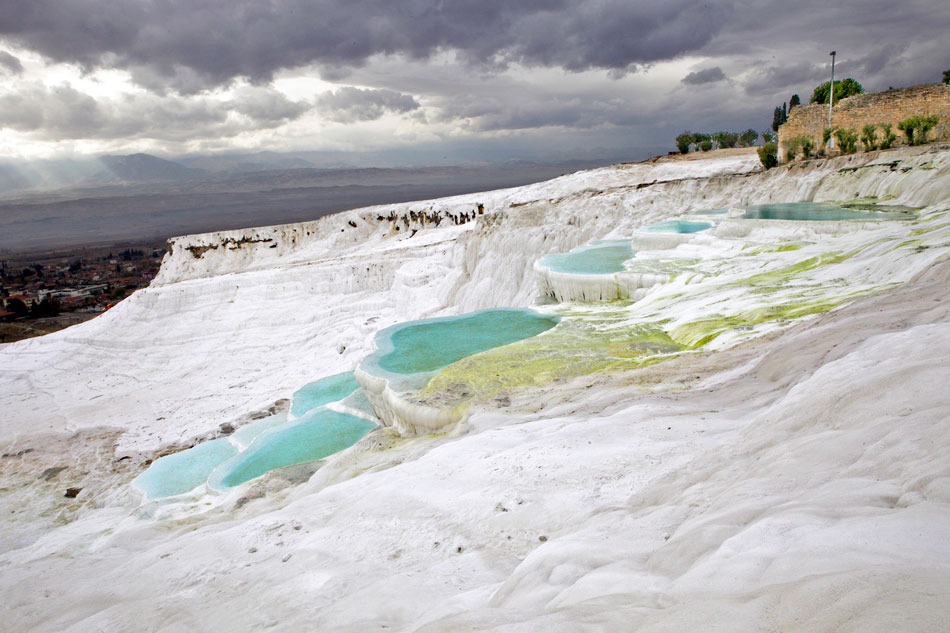
At the top of the hill, the formations start out as a promenade of brown, pock marked craters. Collecting from rain and small spring rivulets that flow through a man made garden-park, etching tributaries on its way down.
Past the initial plateau is where the formations morph into something truly magical. Puffy “cotton” arrangements roll and drip as if gigantic dollops of melted marshmallow had dropped from the sky and lathered itself onto the snowy landscape. It had started to drizzle and raindrops pinged at the still pool surfaces, pulsing to an entrancing dance. Slivers of sunset, streaking through cracks in the rain cloud, caught the ripples in a sparkling light show.
Shoes are strictly prohibited to protect the World Heritage Site. All the better for dipping into the water and adding to the experience. The calcium rich beds are rock hard with a slimy gel-like coating and that made it a slippery walk. We walked deliberately, having to find sure footing before each step. Occasionally, you’d hear a yelp followed by a splash as someone took an abrupt dive into the pool. I hope he bagged his iPhone.
The pools at the top are warm and as you progressed down the hill it had cooled to a chill (especially in the winter weather) numbing your toes. Nearing the bottom, we kept our bare feet out of the icy pools altogether, enduring the winter breeze to the exit and the promised warmth of our shoes.
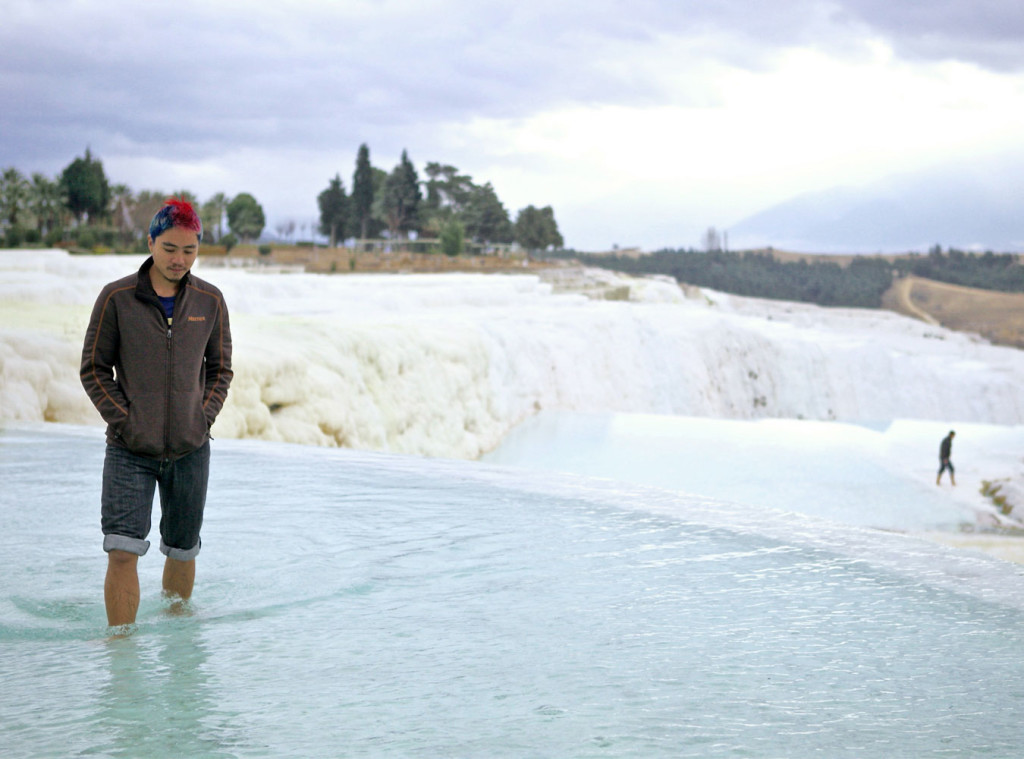
Homestay
Our host at the bed and breakfast was a gaunt man, with a paunch, in his 40s. Dinner was a simple lamb chop with bread, done by his wife in their ground floor kitchen. While she cooked, he chopped wood to put into a boiler stove, situated in the middle of the kitchen; it doubled as central heating for the double story house.
We ate our meal together with the couple, eyes aimed upwards at a dated CRT TV mounted to the wall, a black and white rerun of a Turkish fantasy (not dissimilar to the original stock motion version of Clash of the Titans) flickered on screen.
As the night settled in, we switched from tea to raki and it was only after a few that I started to deduce the storyline, it was a comedy of sorts, it must be.
I didn’t remember much, but somewhere before then and turning in, the owner had inspected my Crocs sandals and proclaimed the ridiculousness of my footwear in slurring English. To prove his point, he proceeded to cut the heels off his shoes with a kitchen knife, dropped it onto the floor, before sliding his feet in. His bewildered face transformed into one of utter delight. “So convenient!” he nodded his approval.
We paused, unsure of what had just happened, before breaking out into rambunctious laughter.
When we left, the owner waved us goodbye with his “new shoes” in hand.
[photogrid ids=”472,471,470,468,467″ captions=”no” columns=”four” fullwidth=”yes” ]
- Nice, The French Riviera, France - November 11, 2015
- The Tsukiji Fish Market Tuna Auction Experience - October 25, 2015
- The Sandstone Peaks of Meteora (Greece) - September 28, 2015
